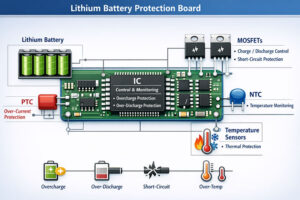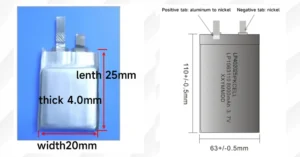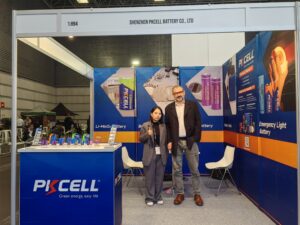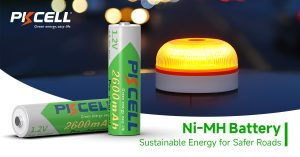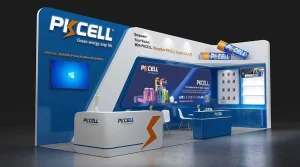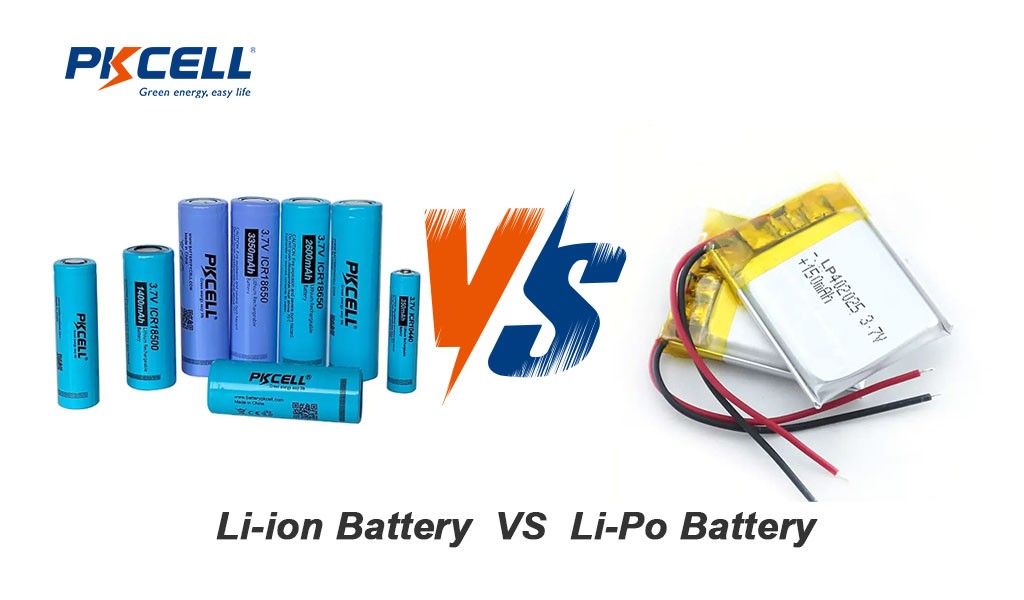
Key Highlights
- Lithium-ion (Li-ion) batteries and lithium-polymer (LiPo) batteries are two popular kinds of rechargeable batteries.
- Li-ion batteries are known for having a high energy density. You will find them in laptops and in smartphones.
- LiPo batteries are lightweight and can be flexible. These work well in wearables and drones.
- Lithium-ion batteries typically offer a longer lifespan, while lithium-polymer batteries provide greater versatility in shape and size.
Introduction
As battery technology grows, it is good to know the differences between lithium-ion and lithium polymer batteries. When you learn about both, you will know which one is better for your needs every day. Lithium-ion batteries typically offer a longer lifespan compared to their lithium-polymer counterparts. Conversely, lithium-polymer batteries tend to have a shorter lifespan but excel in delivering higher discharge rates. When you know the differences for each battery type, you can pick the best one for you.
Understanding Lithium-Ion Batteries
Lithium-ion batteries, or Li-ion batteries, are the ones that power many devices we use every day. A lot of people go for them because they have high energy density. These batteries use lithium to give the energy that all these devices need. Li-ion batteries hold their power for a long time even if you do not use them. They retain their power when stored on a shelf or within your device. This makes them very dependable. You can trust that your device will be ready to use after a long time without charging.
The Science Behind Lithium-Ion Technology
Lithium-ion batteries work because of the way ions move between the two main parts. These two parts are called electrodes. One is the anode, which is made from graphite. The other is the cathode, and it has lithium cobalt oxide in it. A liquid electrolyte is placed between the anode and cathode. This liquid electrolyte helps the lithium ions travel back and forth between the graphite anode and the lithium cobalt oxide cathode. The battery gives power when the ions move this way, using the anode, cathode, electrolyte, lithium, cobalt, and ions.
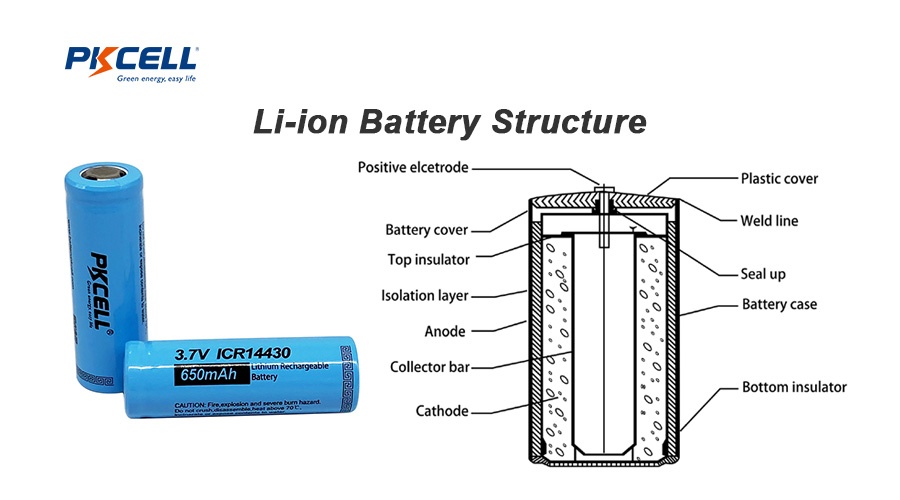
Advantages and limitations in Usage
Advantages:
- High Energy Density: They store more energy in a compact size than other rechargeable batteries.
- Smaller, Stronger Devices: Their efficiency enables the creation of lighter, more powerful electronics.
- Improved Safety: Advances in battery management systems (BMS) and design have enhanced safety and reduced thermal runaway risks.
Limitations:
- Thermal Runaway: Excessive heat can lead to fire due to the volatile liquid electrolyte.
- Safety Concerns: Despite improvements, damaged or malfunctioning batteries still pose risks.
In summary, lithium-ion batteries offer high energy density and smaller sizes, but require careful management to mitigate risks like thermal runaway.
Exploring Lithium-Polymer Batteries
Lithium-polymer batteries, also called LiPo batteries, are a new type of lithium battery. These polymer batteries are different because they are slimmer, and the makers can create them in various shapes. A big thing about this battery is the use of a polymer electrolyte, which is a gel and not a liquid electrolyte. Using the polymer electrolyte lets people make LiPo batteries in many shapes and sizes. This new kind of electrolyte is what makes these polymer batteries different from other lithium batteries.
Composition and Design Differences from Lithium-Ion
The main difference between lithium-ion and polymer batteries is in the type of electrolyte they use. Lithium-ion, or li-ion, batteries have a liquid electrolyte. Polymer batteries, also known as LiPo batteries, use a polymer electrolyte instead. This change in electrolyte means these lithium batteries are made in different ways.
LiPo batteries use electrolytes that feel solid or like gel. Because of this, they do not need to have a hard case over them. They can also change shape easily. The makers can shape LiPo in many different ways. Some of these batteries are made thin and flat, so they fit well in most new electronic devices.
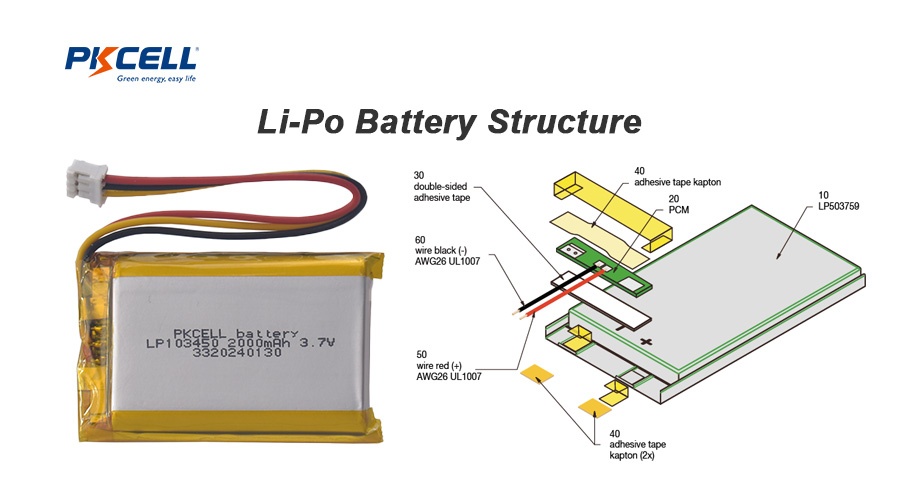
Benefits and Limitations in Usage
Advantages:
- Lightweight and Compact: Ideal for space-critical applications like RC drones and toys.
- Higher Energy Storage: Stores more energy than Li-ion batteries, making them suitable for high-power devices.
- Low Internal Resistance: Ensures fast power delivery for high-performance devices.
Limitations:
- Shorter Lifespan: LiPo batteries have fewer charge cycles compared to Li-ion batteries.
- Sensitive to Overcharging and Impact: Overcharging can damage the battery, reducing its lifespan or causing failure.
Overall, LiPo batteries excel in lightweight, high-power applications but may not be ideal for long-lasting energy needs.
Lithium ion vs Lithium Polymer: Performance Metrics
When you choose a battery type such as lithium or polymer, you will need to think about many things. You should check the energy density, how safe the battery is, how long it will last, and the total price. All these points are important. They help you pick the best battery type for your use.
Energy Density and Efficiency
In the past, Li-ion batteries had a bit more energy density. But now, LiPo technology has improved. There are some LiPo batteries that can have energy density equal to or even higher than Li-ion batteries. This shows that LiPo batteries are now a good choice for people who want good energy density.
Safety and Durability Concerns
Both lithium and polymer batteries, like Li-ion and LiPo, can have some problems with safety. One big issue is called thermal runaway. This is when a lithium or polymer battery gets too hot. If no one stops it, things can get worse fast. This can hurt the device, the people using it, or even both.
LiPo batteries use a gel polymer electrolyte. This means they do not leak as much as other batteries. For this reason, they can be safer in some ways. But the packaging is flexible in the polymer LiPo battery. So, it can get a hole in it more easily. If this happens, it can cause a short circuit inside the battery.
LifeSpan
Li-ion batteries can last a long time. They often work for several hundred to a few thousand charge cycles. The way you use and charge them will affect this number. LiPo batteries do not work as long as Li-ion ones. Most of the time, they can go for several hundred charge cycles only. The time that batteries work can change. The pressure on the batteries during charging and discharging is important.
Different Applications in Real Life
Choosing between lithium-ion and lithium-polymer batteries really depends on what you want and need. Both polymer batteries and other lithium battery types have their own ways to work and help you get what you need.
- You can see lithium-ion batteries in a lot of products and devices these days.
- Consumer Electronics: You will find these batteries in things like smartphones, laptops, tablets, and other portable devices.
- Electric Vehicles: These batteries hold a lot of energy, so they are good for both small scooters and big cars.
- Power Tools: A lot of cordless power tools now use lithium-ion batteries. T
Lithium-polymer batteries, also called polymer batteries, are a good choice when you have to think about size and weight. These polymer batteries are light, and they are very thin. You can use one when there is not a lot of space or if you do not want something heavy.
- RC Vehicles & Drones: People often use LiPo batteries in RC vehicles and drones. The batteries are light. This helps the rc vehicles go fast.
- Wearable Technology: LiPo batteries are small and can bend. This is why they work well in wearable tech. People use them in things like smartwatches, fitness trackers, and health monitors.
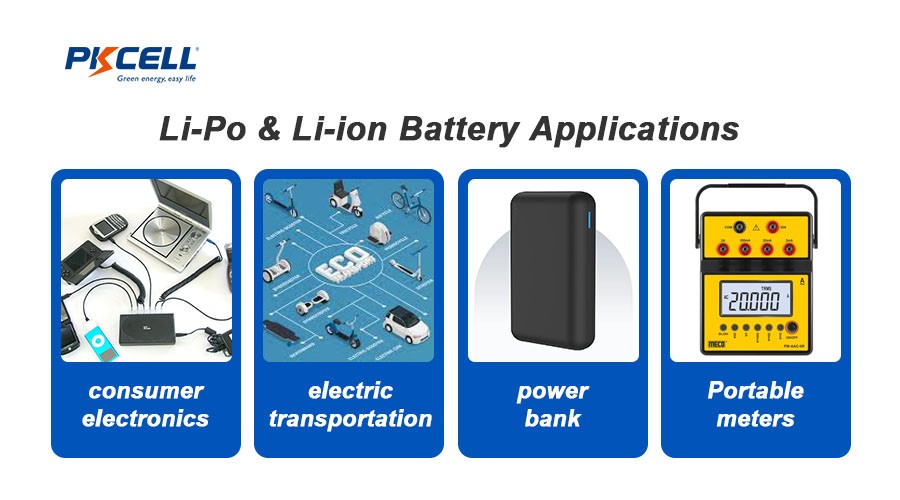
Different Pricing
The price of lithium-ion and lithium-polymer batteries is a big factor that decides how many people want to buy and use them. In the past, polymer batteries like LiPo have cost more to make. As battery technology gets better, it is now cheaper to make these types of batteries. Because of this, the price difference between them is not as big as before. The table below shows an easy way to see the costs of these types of batteries.
|
Feature |
Lithium-ion |
Lithium-polymer |
|
Cost |
Lower |
Higher |
|
Affordability |
More affordable |
Less affordable |
|
Long-term Investment |
Can be more cost-effective due to longer lifespan |
May require more frequent replacements |
Li-ion batteries might look less expensive to buy at first. But they usually last a long time. In the long run, this can help you save money.
Choosing the Right Battery for Your Needs
Choosing between a lithium-ion and a lithium-polymer battery depends on your specific needs. There is not one battery type that works for everyone. You need to look at what you want before you pick the one that is best for you. If you are looking for a battery with good energy density that lasts a long time and costs less, a lithium-ion battery can be a better choice. But if you want something lightweight that can have many shapes and lets out power fast, then a lithium-polymer battery might be good for you.
Why PKCell Battery?
In a market where there are many options, PKCell Battery has become a trusted name for good batteries. The brand works to bring new ideas and makes sure that customers feel happy with what they buy. You can get both lithium and polymer batteries that are built to work with the power needs of today. Choosing the right battery is important if you want your devices to work well and last a long time. PKCell helps by giving you clear details, so you can know what your device needs. The expert team is also there to help you, so picking the best battery for you can be simple. They care a lot about giving good quality. That is why PKCell is a good choice when you need a battery for your devices.
Conclusion
To sum up, it is important to know that lithium-ion batteries and polymer batteries are not the same. A lithium-ion battery gives you higher energy density. A polymer battery, also called a lithium-polymer battery, is easier to make in different shapes, and the material is more flexible. Before you pick a battery type, you should think about your specific needs. Look at things like performance, safety, and how long the battery will last. If you want up-to-date and reliable choices, Pkcell Battery is a good pick for you. If you want a quote, just ask for a free consultation.
Frequently Asked Questions
Do lithium-ion batteries last longer than LiPo?
Lithium-ion batteries usually have more charge cycles than LiPo batteries. But the lifespan of rechargeable batteries is not always the same. The way you use them and the discharge rate also matters. The lithium and LiPo batteries can last for different amounts of time. This is because their lifespan depends on their discharge and how people use them every day.
Which type of battery, lithium ion or lithium polymer, is more commonly used in electronic devices?
Lithium-ion batteries are more commonly used in electronic devices due to their higher energy density and longer life cycles. They are prevalent in smartphones, laptops, and electric vehicles. In contrast, lithium polymer batteries, while lighter and flexible, are typically found in specific applications where weight and shape are crucial.

 USB Rechargeable Lithium Battery
USB Rechargeable Lithium Battery
